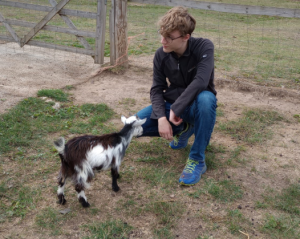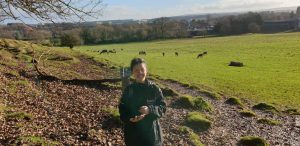
A great app will keep you glued to your device. Whether it’s lifestyle, social media, utility, gaming, productivity or news; apps are an essential part of student life.
Each month we challenge our Student Digital Champions to delve into a new category, delivering fresh perspectives and making proclamations for essential applications. Which features are dumb? What should be at the tip of your thumb?
Written by Hannah Harrison, Emma Yi Kwan Lau, Conor MacDonald, Katie Stoker, Bibiana Lebersorger and Rosie Neville.

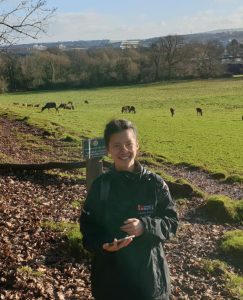


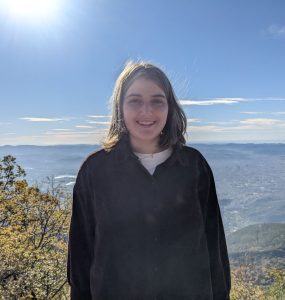
April 2023 – Sustainability
We are regularly reminded of the negative impact our mere existence can have on the environment. Some play it down, others have grown apathetic, but at least to some extent, the majority of us want to reduce it. It can be unclear how we can help effectively. Maybe the answers lie within our mobile apps to provide practical tips, track carbon footprints and help connect with our community to make informed decisions.
No Waste
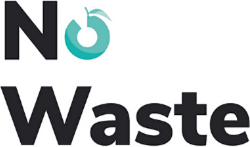 No Waste is an inventory app aimed at helping to reduce food waste by helping you to keep track of what you have and when it expires. There are separate lists for your freezer, fridge and cupboards to keep things organised. This can help you to see what needs using first, plan meals and avoid buying foods you already have – saving you money and reducing the weight of the bags you have to carry back home! There is also a shopping list function so that you can add items straight away when you run out. You can also track your monthly food waste and compare it to both the global average and others using the app, and see which foods you buy have a high environmental impact.
No Waste is an inventory app aimed at helping to reduce food waste by helping you to keep track of what you have and when it expires. There are separate lists for your freezer, fridge and cupboards to keep things organised. This can help you to see what needs using first, plan meals and avoid buying foods you already have – saving you money and reducing the weight of the bags you have to carry back home! There is also a shopping list function so that you can add items straight away when you run out. You can also track your monthly food waste and compare it to both the global average and others using the app, and see which foods you buy have a high environmental impact.
Pros
- Simple layout and very easy to use
- Free version available which has most features
- Separate inventories for freezer, fridge and cupboards
- Notification feature for expiry dates
- Shopping list with option to mark items as essential
- Can adjust suggested expiry dates if the product comes with one
- Can scan barcodes or add foods manually
- Can see which foods you buy are CO2 heavy and compare your waste percentage to the average.
- Food databases for different countries with a huge range of foods
- Multiple languages
Cons
- Requires quite a bit of work, especially if you buy lots of items at once.
- Limited inventory space and number of inventory lists in free version
- To unlock all features requires a subscription
- Some ingredients come up multiple times in a search with different expiry dates so it’s not always easy to know which to choose.
The app is well designed and very easy to use, with options to use a barcode scanner or search for your food manually, and suggested expiry dates for products which don’t come with one. I also really like that the shopping list is integrated into the app so that you can add items straight away when you run out. The basic version of the app is free, and contains most of the features. The only real restriction is that you can only add up to 500 items to your inventory, so the premium version might be worth it in a larger house or if you buy many items. The downside to the app is that it does require quite a bit of work to upload all of the foods you buy, and mark what you’ve opened and what’s been used up – which could be especially difficult if you share food with someone else! However, as an individual it is manageable and can definitely be worth it if you often find yourself throwing things away after they’ve expired. It can even help with productivity as you can spend less time trying to figure out what to have for dinner!
Reviewer: Hannah Harrison
Download links:


Olio
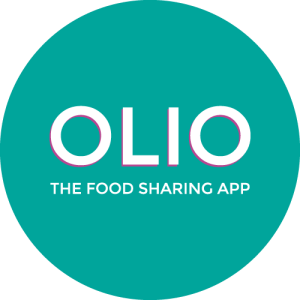 Olio is a mobile app for sharing by giving away, getting, borrowing, or lending things in the community for free to reduce household and food waste. It is a fantastic way to connect with your neighbours and share resources. Not only can individuals share surplus items from their houses, users can also become food heroes to help collect and redistribute potential food waste from companies. The companies include Tesco, OneStop, Iceland, Booker Group and more. It is an opportunity for us students to contribute to the wider Bristol community!
Olio is a mobile app for sharing by giving away, getting, borrowing, or lending things in the community for free to reduce household and food waste. It is a fantastic way to connect with your neighbours and share resources. Not only can individuals share surplus items from their houses, users can also become food heroes to help collect and redistribute potential food waste from companies. The companies include Tesco, OneStop, Iceland, Booker Group and more. It is an opportunity for us students to contribute to the wider Bristol community!
Pros
- Get connected with the community
- Can get some nice free food
- A volunteering opportunity to write on your CV
- An easy way to donate clothes and other items that we no longer need
Cons
- May need to drive to collection points if you work as a food hero
- Occasionally people may not show up to collect items
- Users do not have to verify, so the source of food may not be reliable
- Can be competitive to get the items we need
I was a frequent user in my second year. It was undoubtedly a great way to contribute to the community. I do not use Olio as much this year because collection points can be far away from the university campus and my house. However, I highly recommend people start using Olio, particularly if they have a car! It is an easy way to save food waste and give back to Bristol’s community. According to recent data, the UK throw away 9.52 million tonnes of food yearly, contributing to 25 million tonnes of carbon dioxide emissions! If we can, why not take a step forward to reduce the amount of waste created and create a more sustainable lifestyle?
Reviewer: Emma Yi Kwan Lau
Download links:


Giki Zero
 Giki Zero is an app designed for those of us who want to live more sustainably but have no idea where to look. Its slick and accessible design will have you cutting your carbon footprint in no time. Upon opening the app for the first time, you’ll be asked a series of questions relating to your carbon footprint. Unlike some surveys you may have done in the past, Giki Zero’s style of questioning is engaging and fun. Its questions are relevant and interesting, with small animations guiding you through it all.
Giki Zero is an app designed for those of us who want to live more sustainably but have no idea where to look. Its slick and accessible design will have you cutting your carbon footprint in no time. Upon opening the app for the first time, you’ll be asked a series of questions relating to your carbon footprint. Unlike some surveys you may have done in the past, Giki Zero’s style of questioning is engaging and fun. Its questions are relevant and interesting, with small animations guiding you through it all.
The app will soon figure out your carbon footprint – mine came out at 5,333 kg of carbon emissions. Giki Zero will also provide a frame of reference so you can actually understand what your emissions mean. For instance, if everyone lived like me, Giki Zero predicts that the global carbon budget would run out in just over 6 years. This offers a stark reminder of the challenges we face. Reassuringly, below this reminder is the “Time to take a step” button. This leads you to all sorts of ways in which you can cut your carbon emissions.
In addition to your general carbon footprint, the app allows you to take a deeper dive into your food, transport, and consumer footprint, among other things. Unfortunately, this feature is only available through a web portal on the app – it’s still fully functional, and hopefully this will be improved soon.
You’ll get shown a few key steps that Giki Zero thinks you should commit to. My ones included always using the dishwasher in eco mode and avoiding plastic wet wipes. Scrolling down provides you with a litany of other actions too. These can be searched through and filtered so that you can find ones for yourself. The steps you commit to will be shown on the app’s homepage. You can log and track your progress here too, which is ideal if you’ve committed to a lot.
It’s encouraging to know the thought that has gone behind the app. It’s run by the social enterprise Giki which according to its website is led by “net-zero experts” which include climate scientists. They say their mission is to help people cut carbon.
I would definitely encourage people to give the app a go (it’s free after all!). Just by even getting a sense of your carbon footprint you may unconsciously start taking little steps toward a more sustainable lifestyle, and that can only be a good thing. By encouraging your friends and family to also take part, their small steps may add up to make a big impact.
Reviewer: Conor MacDonald
Download links:


TooGoodToGo

Aiming to be more environmentally conscious and sustainable can be great. However, it can be super easy to get a little lost or feel that you don’t know where to begin. One way that we can be more sustainable is by reducing the amount of food waste that we produce. TooGoodToGo is an app which allows you to buy food from restaurants and grocery stores in your area which have a surplus of food. The app is a great solution to not only contribute to reducing the amount of food waste in your area, but is also a chance to get hold of groceries or treats for only a fraction of the usual price!
The app is super easy to use. Simply enter your location and the available ‘Magic Bags’ in your area are listed. Each listing shows you the restaurant or grocery store name, price of the bag, distance from your location and collection time. While you don’t know the exact items you will be getting, there is a short description of the sort of products you might receive.
Pros
- Cheaper than the usual price
- Can contribute to reducing food waste in your local community
- Option to ask the store about allergens or specific ingredients
- The app is simple to use. You can even favourite restaurants and stores to easily check if there is anything on offer.
Cons
- You don’t know the exact contents of your Magic Bag until you pick it up. However, this is understandable as most places don’t know what will be left over at the end of the day…
- Pick up times are restricted to specific time slots.
- While the app is great if you are living in a busy location/city centre, there are limited options for those living in smaller towns/not close to the city centre.
TooGoodToGo is a great solution for reducing food waste, and is a great way to be more sustainable. Depending on location, the range of food on offer can vary. Getting more stores involved would be a great idea. Specifically within Bristol, there are a wide range of options available (especially for those living in and around the city centre). The app is also a really nice way for students to try some of the food on offer in Bristol, but on a student budget! Overall, I would definitely recommend giving TooGoodToGo a try and grabbing a Magic Bag next time you are feeling peckish!
Reviewer: Katie Stoker
Download links:


HappyCow

HappyCow is the perfect app to download if you’re looking to expand your repertoire of local vegan and veggie eateries, or if you’re travelling and want to find a healthy plant-based spot nearby. By entering your location, the app lets you discover the range of restaurants and cafes that are available locally according to your dietary preference. The filter function means you can easily narrow down your search, selecting vegan-only places, different types of cuisine or gluten-free friendly options. It’s perfect for planning ahead, as you can read up on reviews and ratings before deciding where to eat, and the option to save places offline is handy if you think you’ll be somewhere with unreliable internet. If you’re looking to connect with other avid foodies, the community feature is great. It lets you interact with other HappyCow users around the world in via chat, a cool new feature added since I downloaded the app in 2016!
Pros
- A really good tool if you are traveling somewhere new and want to find veggie and vegan restaurant options at the tap of a screen
- The dietary filters are really good if you have restrictions e.g., GF-friendly
- Each restaurant/café has been reviewed, so you can scroll through what other people think before deciding on a place.
- Once you’ve chosen a location, you can use the ‘navigate to’ map feature to direct you right to the door.
- HappyCow is currently being used in over 180 countries, so there is something for everyone regardless of your travel plans.
- App interface is very user-friendly.
- Over 3 million app downloads worldwide.
Cons
- £3.99 initial download cost may be off-putting.
- You need to remember to save places on the map if you plan to use the app without having internet access.
- Although the dietary filters are good, if you have specific allergies the app might not be able to cater to your needs.
As more and more restaurants are starting to add good vegan and veggie options to their menu, it’s great to see an app that champions planet-conscious eating habits, connecting you to great food spots in your area and beyond. HappyCow aims to be the app that lets you ‘carry the vegan world in your pocket’. I think it does this and more by letting you connect with sustainable food options, as well as other like-minded veggie foodies around the world.
Reviewer: Bibiana Lebersorger
Download links:


Ecosia

There is an increasing awareness of the impact of digital human activity on the environment. For example, the use, transmission, and storage of a gigabyte of information represents around 40 grams of emitted carbon to the atmosphere. Ecosia is a search engine that has been gaining popularity in recent years for its unique mission: to plant trees using ad revenue generated from user searches. The company was founded in 2009 by Christian Kroll, with the aim of using the power of technology to fight climate change.
Pros
- Environmental impact: The most obvious pro of using Ecosia is its positive impact on the environment. It has planted over 170,000,000 trees! By using Ecosia, you are directly contributing to the planting of trees and the reforestation of areas that have been deforested.
- Ease: It is both incredibly easy to install – in a few seconds, you can switch your default search engine from Google to Ecosia – and use – it works like any other search engine.
- Transparency: Ecosia is transparent about all of its numbers. It publishes both its financial reports and tree planting receipts every month and so remains accountable.
- Privacy: Ecosia has a strong privacy policy that protects user data. Unlike some other search engines, Ecosia does not sell user data to third-party advertisers.
- Free
Cons
- Search Result: Day-to-day use, I would say there is little difference between Ecosia search results and Google. However, I did find a disparity when it came to searching for academic literature where the search results may not be as comprehensive as they would be on Google.
- Ad Revenue: Ecosia generates revenue from ads – however this is the case with most search engines.
When I first heard about Ecosia, admittedly, I was a bit sceptical. I thought it must either be the case that Ecosia had poor search quality and/or it wasn’t actually planting trees. Surely it wasn’t the case that it provided an easy and effective way to make a positive difference? Turns out I was wrong.
While many tree-planting initiatives are being critiqued for harming local ecosystems, Ecosia has been praised for its thoughtful approach to tree planting. For example, rather than planting imported or invasive trees, Ecosia always plants native trees.
Furthermore, the search results for day-to-day use are comparable. A few years ago, the quality of the search results was noticeably worse for Ecosia, but in the last few years, high quality search results have been a central focus for Ecosia’s product team, which has resulted in remarkable improvement.
I would definitely encourage people to give Ecosia a go. By using it as your primary search engine, you can contribute to reforestation which helps combat climate change. Obviously, to slow climate change, people need to do much more than plant trees. However, using Ecosia as your default search engine is an easy and effective change that does make a positive difference. So why not?
Reviewer: Rosie Neville
Download links:


These apps aren’t supported or managed by the University of Bristol. Don’t forget to think about what data you are adding to these apps if you decide to download and use them. Our Online Identity video highlights some of the factors you may want to think about when you are online.
Next month: News and current affairs
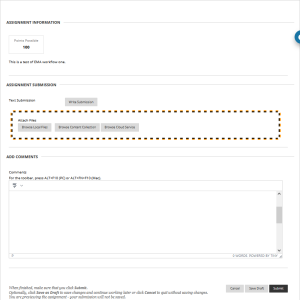
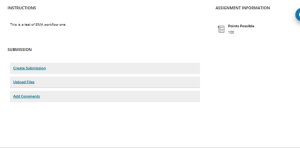
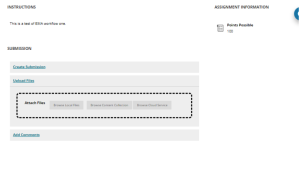








 No Waste is an inventory app aimed at helping to reduce food waste by helping you to keep track of what you have and when it expires. There are separate lists for your freezer, fridge and cupboards to keep things organised. This can help you to see what needs using first, plan meals and avoid buying foods you already have – saving you money and reducing the weight of the bags you have to carry back home! There is also a shopping list function so that you can add items straight away when you run out. You can also track your monthly food waste and compare it to both the global average and others using the app, and see which foods you buy have a high environmental impact.
No Waste is an inventory app aimed at helping to reduce food waste by helping you to keep track of what you have and when it expires. There are separate lists for your freezer, fridge and cupboards to keep things organised. This can help you to see what needs using first, plan meals and avoid buying foods you already have – saving you money and reducing the weight of the bags you have to carry back home! There is also a shopping list function so that you can add items straight away when you run out. You can also track your monthly food waste and compare it to both the global average and others using the app, and see which foods you buy have a high environmental impact.

 Olio is a mobile app for sharing by giving away, getting, borrowing, or lending things in the community for free to reduce household and food waste. It is a fantastic way to connect with your neighbours and share resources. Not only can individuals share surplus items from their houses, users can also become food heroes to help collect and redistribute potential food waste from companies. The companies include Tesco, OneStop, Iceland, Booker Group and more. It is an opportunity for us students to contribute to the wider Bristol community!
Olio is a mobile app for sharing by giving away, getting, borrowing, or lending things in the community for free to reduce household and food waste. It is a fantastic way to connect with your neighbours and share resources. Not only can individuals share surplus items from their houses, users can also become food heroes to help collect and redistribute potential food waste from companies. The companies include Tesco, OneStop, Iceland, Booker Group and more. It is an opportunity for us students to contribute to the wider Bristol community! Giki Zero is an app designed for those of us who want to live more sustainably but have no idea where to look. Its slick and accessible design will have you cutting your carbon footprint in no time. Upon opening the app for the first time, you’ll be asked a series of questions relating to your carbon footprint. Unlike some surveys you may have done in the past, Giki Zero’s style of questioning is engaging and fun. Its questions are relevant and interesting, with small animations guiding you through it all.
Giki Zero is an app designed for those of us who want to live more sustainably but have no idea where to look. Its slick and accessible design will have you cutting your carbon footprint in no time. Upon opening the app for the first time, you’ll be asked a series of questions relating to your carbon footprint. Unlike some surveys you may have done in the past, Giki Zero’s style of questioning is engaging and fun. Its questions are relevant and interesting, with small animations guiding you through it all.







 Google Lens is an image recognition technology which can be used to collect information on the objects and text around us. The tool can be used in many different ways, some of which might be useful for you either in your everyday life, or even at University. Here are some exciting things that Google Lens can do…
Google Lens is an image recognition technology which can be used to collect information on the objects and text around us. The tool can be used in many different ways, some of which might be useful for you either in your everyday life, or even at University. Here are some exciting things that Google Lens can do… SketchAR is a drawing app that helps users draw easily with Augmented Reality (AR) technology. The app projects the image onto a real-world surface using your camera, and you can create your drawings simply by tracing them. It’s really easy to use, and there are lots of tools and functions that help you create amazing art! For example, there are courses and lessons that teach you how to draw objects, such as animals, architecture, and characters. They cover a wide range of arts and difficulties, so it’s recommended for both beginners and amateurs!
SketchAR is a drawing app that helps users draw easily with Augmented Reality (AR) technology. The app projects the image onto a real-world surface using your camera, and you can create your drawings simply by tracing them. It’s really easy to use, and there are lots of tools and functions that help you create amazing art! For example, there are courses and lessons that teach you how to draw objects, such as animals, architecture, and characters. They cover a wide range of arts and difficulties, so it’s recommended for both beginners and amateurs!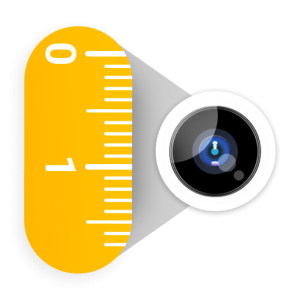 AR ruler is an app that uses augmented reality (AR) technology to tape measure the real world with your smartphone’s camera. It allows you to measure distances, angles, areas, perimeters, volume, and polylines in various units. It is fairly intuitive and easy to use – you point the camera at the place/object you want to measure and the AR technology will detect the plane, which you can start measuring.
AR ruler is an app that uses augmented reality (AR) technology to tape measure the real world with your smartphone’s camera. It allows you to measure distances, angles, areas, perimeters, volume, and polylines in various units. It is fairly intuitive and easy to use – you point the camera at the place/object you want to measure and the AR technology will detect the plane, which you can start measuring.
